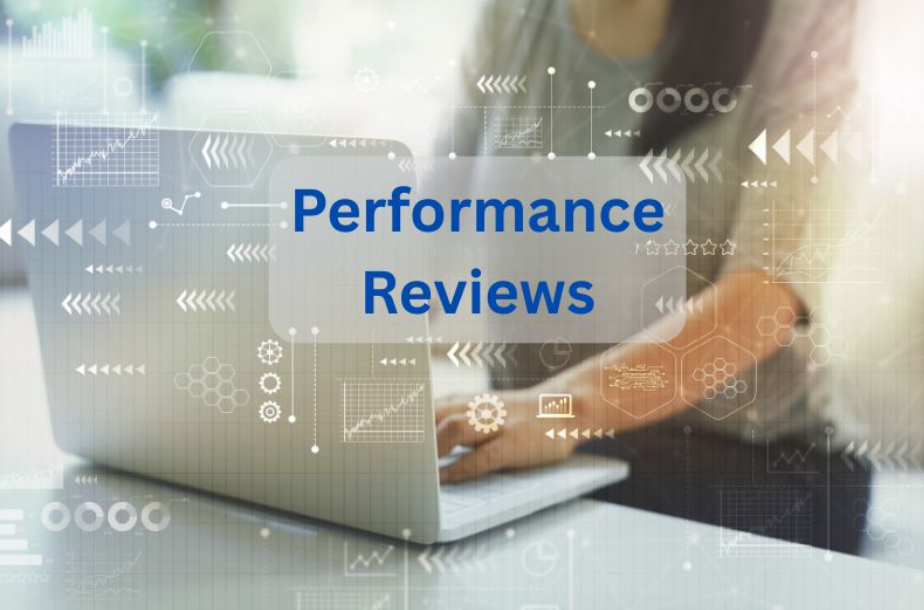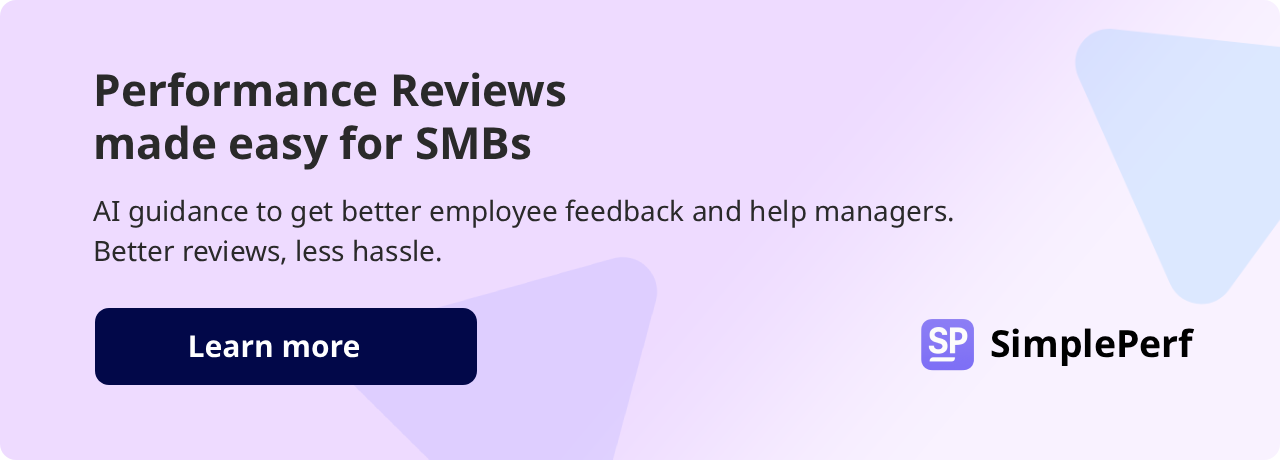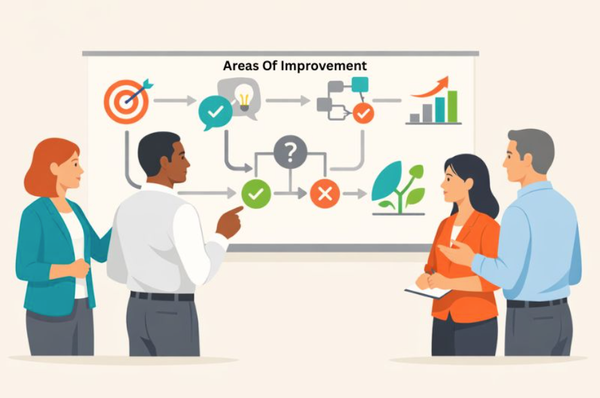Why Are Performance Reviews Important + 3 Tips To Improve Them
Performance reviews are important because they impact performance, staff morale, culture, managerial performance, and employee engagement. If we can draw this common thread through all these important elements, then it’s worth looking into more closely.

Performance reviews are important because they impact performance, staff morale, culture, managerial performance, and employee engagement. If we can draw this common thread through all these important elements, then it’s worth looking into more closely.

How well are performance reviews doing?
Unfortunately, the employee performance review doesn’t appear to be working for everyone.
When Leadership IQ surveyed 48,012 employees and managers, they discovered that only 13% thought the review process was useful. CEOs placed even less importance on it, with only 6% in favor of current performance evaluations. A whopping 88% of the respondents said their current performance management process negatively impacted their view of HR.
A distinction between high and low performers is important
The study also revealed a key insight about employee engagement: employees value an annual performance review that distinguishes between high and low performers. Employees feel more inspired when this distinction is made clear through employee performance indicators.
Perhaps you’ve also witnessed this scenario:
A committed employee works hard at meeting their objectives, values ongoing feedback, and is consistently improving. As this begins to pay off, their job performance level increases. They become more successful at what they do.
Come time for performance appraisals, there is no way to quantitatively separate them from poorly performing team members. They leave performance review meetings feeling undervalued and frustrated. After a while, they seek opportunities elsewhere, while the company sits with the poor performers.
Meaningful and constructive feedback is important
Sadly, the performance conversation can be severely lacking in depth, meaning, and constructive feedback. This is especially true when the focus is on ‘getting it over with’, or completing the performance review form, or on team performance alone.
Performance feedback should focus on the employee’s progress, as that is what they need. Employees crave good, honest, and actionable feedback during performance discussions because this gives them a roadmap for success.
Meaningful feedback goes beyond a few vague comments like, ‘It seems like everything is on track’, or ‘I’m ok with what you’re doing right now’, or ‘I think you need to do better’. If you want to encourage employees, they need something more concrete.
Examples of meaningful feedback
- ‘Your presentation last week was well-structured, informative, and filled with product knowledge, demonstrating your expertise. I think you accomplished the goal we discussed.’
- ‘I noticed that you took the initiative to arrange cross-departmental training about the marketing campaign we want to run. It appears to have improved everyone’s understanding.’
- ‘Your attention to detail is excellent. Try to delegate more to your team members in the future because I know you’re working on how you can empower them to do their jobs better.’
For more performance review tips: 75 effective Performance Review Phrases examples in 2025
Now, this study we’re drawing from might only be a small insight into the performance review system, but if we’re honest with each other, it reflects the thoughts of managers and employees in most companies. Performance reviews are in need of an urgent makeover.
3 Tips for improving the performance review process
Despite their terrible reputation, performance reviews are necessary. We can’t completely eliminate them because that will cause subjective performance management to take the lead, and that has already proven ineffective. But we can improve the process, and we should. Here’s what can be done.
1. Create a culture around positive contribution
Traditional performance reviews focus on past performance, and while this can be helpful, it doesn’t help future performance. For lasting change to take place around reviews, it must become an important part of the culture, and this means the focus must be on how you evaluate employee performance daily and for the future.
One example of creating a culture around positive contribution comes from integrating an employee engagement app into Slack. Your performance management system becomes about open communication and recognizing culture-positive behavior in a fun and engaging way. How does this work?
Daily recognition equals engaged employees
By helping peers to recognize one another’s positive contribution on a daily basis, in the most organic way possible - as a Clappy Kudos shoutout. This also allows managers to respond quickly, giving continuous feedback to direct reports who are doing the right things.
By the time annual review time rolls around, you’ve got all the evidence you need to contribute meaningfully to your employees about their contributions during the review period. Fantastic! No more searching for something to say - it’s all there, and most of the work was done day-to-day and on-the-job by their peers.
The results? A 4-8% increase in retention rate over a 12-month period, as employees feel seen, valued, and get the recognition they’re craving.
2. Create many ways to give good feedback
Think about past reviews. What have they been about for you? Was the focus on your career goals? The organization’s success? Performance metrics? Was it a two-way conversation between you and your manager, or a one-sided affair?
Unless you’re the kind of manager who knows how to crush employee reviews, then it’s been a quick once-a-year sweep through of the entire team's results, and done!
If you didn’t like the way your performance ratings were dealt with, chances are your employees are feeling the same. If you ever wished there were more ways to get good feedback about your own work, why not make a difference now? Here’s how.
Good feedback every day
Apart from using Clappy Kudos, you can use apps like Stany Standup and Pulsy Survey to create opportunities for feedback.
- Stany Standup - Keep your team aligned and everyone involved by introducing async standups. With Stany’s help, you can identify blockers and address them immediately.
- Pulsy Survey - Allows you to measure eNPS, engagement, and gather feedback in Slack. You’ll know how your employees feel about various issues, and you can directly give feedback on these issues - things won’t be left to stew until they become a problem.
3. Bring back respect for the employee performance review
Effective performance reviews are as much about mindset as they are about performance criteria, feedback, or recognition.
The reason performance reviews have lost respect is that they feel ineffective, as shown by the Leadership IQ study. So, to bring back respect for this valuable process, let’s start by giving managers 3 ways to prepare for performance reviews.
1. Start with a clear purpose
As we’ve been discussing, don’t just do reviews because the calendar says it's time to do them. Generate interest in the performance review process by explaining why the performance evaluations exist and what they will be used for.
How will you track progress? What will the formal review be used for? How will you evaluate improved performance? What apps will you use to encourage involvement and make things fun and easy? Be as transparent as you can, and make sure to explain how it will benefit your staff - they will be more open to engage if you do.
2. Make time for reflection
Great performance conversations start long before the meeting. Encourage your employees to reflect every day on the feedback that they get. Let’s say you use apps like Clappy Kudos or Stany Standup. Did they get any recognition for keeping company values? Are they being a team player? What company objectives are they meeting? When your employees come prepared, the conversation will be more meaningful.
3. Reinforce dignity and value
Employee success hinges on how review meetings are conducted. An employee performance review should be a safe space where people are treated with dignity, respect, and where they know their value. Do this for your employees, and the review process will become their favorite meeting.
BuddiesHR has developed a way to do smarter performance reviews, which are:
- Fair
- Transparent
- Actionable
- Effortless
Conclusion
By implementing our tips (including the ‘buddies’), you’re on your way to making performance evaluations fun and extremely valuable. This is a good thing because they impact culture, morale, performance, and overall company success. If you start now, who knows what you’ll have achieved by the end of 2025!





